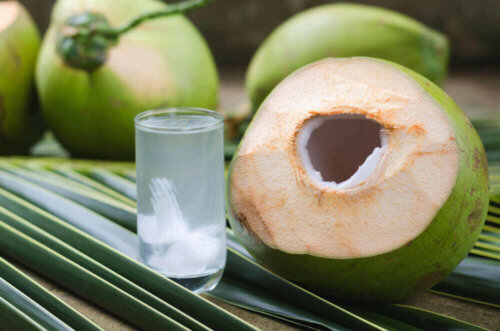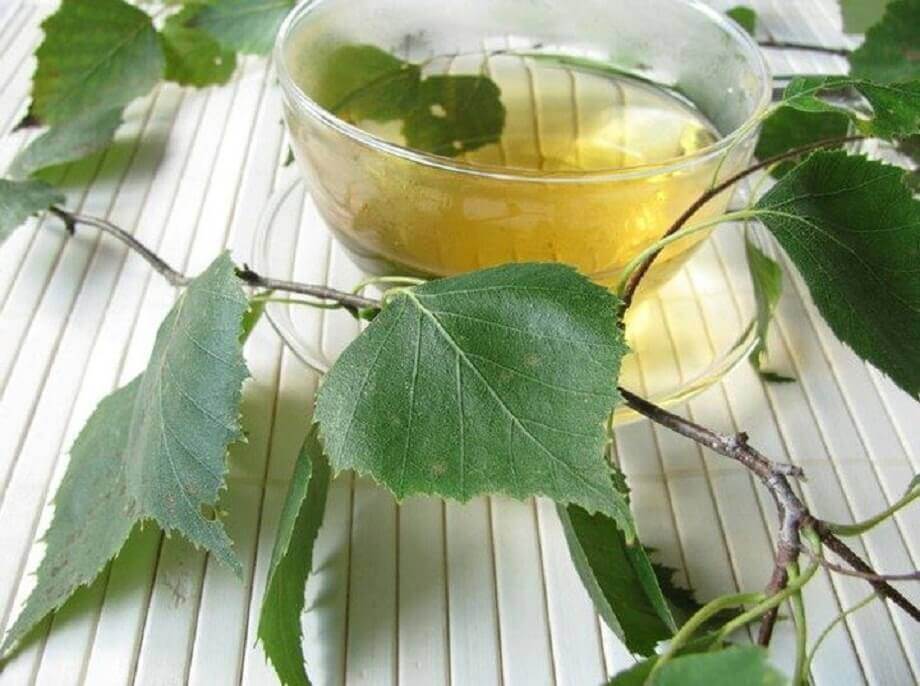How to Relieve a Bladder Infection with 5 Natural Remedies


Reviewed and approved by the doctor Maricela Jiménez López
Have you been diagnosed with a bladder infection and want to know how to supplement the treatment prescribed by your doctor, to get better? In that case, read on to find out what we’re going to tell you below.
There are some remedies to relieve the pain and discomfort this infection can generate, as well as to help expel the bacteria from the urinary tract as quickly as possible. In addition, we also know what are the main risk factors and what you can do to prevent this condition.
Causes and symptoms of a bladder infection
Urinary tract infections can appear in any part of the urinary tract, be it the kidneys, ureters, bladder or urethra. We speak of cystitis when it occurs in the urinary bladder (one of the most common).
Bacterial in origin, it usually occurs when bacteria enters the urinary tract (through the urethra), the body is not able to eliminate it and thus, it reproduces in the bladder. Kidney stones and an enlarged prostate can also impair the regular release of urine and increase the risk of cystitis.
In addition, bad hygiene can also create the perfect setting for this bacteria. Furthermore, it can originate from using wet or tight-fitting underwear and even from unprotected sex.
According to Dr. Talha H. Imam: “Cystitis is common among women, particularly during the fertile period. There are several reasons why women are prone, the most notable being the short length of the urethra and the proximity of the urethra to the vagina and anus, where bacteria are usually located.”
There are other risk factors such as the onset of menopause, the use of contraceptives, having a depressed immune system, urinary tract malformations, recent urinary tract procedures or the use of catheters.
The condition is usually asymptomatic but there might be:
- A constant need to urinate but small amounts of it when you do
- Pain or burning when peeing
- Feeling the urge to urinate even though the bladder is empty
- Cloudy urine and presence of blood
- Pain in the lower abdomen or pressure and cramping in the groin
Treating cystitis
Treatment of this infection usually consists of antibiotics and analgesics (as needed) for a short period of time. Surgery is used only in rare cases.
Along with pharmacological treatment, patients are recommended to maintain good daily hydration, as this contributes to the relief of symptoms and favors recovery.
Although cystitis isn’t usually a serious health problem, it’s important to pay attention to it and follow your doctor’s instructions to avoid complications and major long-term consequences.
Natural remedies for a bladder infection
The following beverages are hydrating and stimulate urination, which is what provides relief. You expel the the pathogens that caused the infection when you pee.
1. Cranberries, watermelon, and cherries

Cranberry juice has been traditionally used as an adjuvant for bladder infections. Studies show it’s effective as a preventative treatment, especially in women with recurrent incidence.
So, it could be an aid in the treatment of a bladder infection when mixed with other fruits containing antioxidants and other bioactives. However, note that it isn’t recommended for people taking anticoagulants.
Ingredients
- ½ c. of fresh cranberries (75 g.)
- ½ c. of chopped watermelon (75 g.)
- Fresh mint (optional)
- ½ c. of cherries (75 g.)
- 1 c. of water (250 ml.)
Instructions
- Wash and dry the cherries and cranberries
- Separately, extract the pulp from the watermelon and discard the rind and seeds
- Blend with the water for two to three minutes to a a smooth texture
- Serve and drink in moderation
- Add some fresh mint for an extra touch of flavor
2. Chamomile tisane
Folk remedies always take into account the classic chamomile tisane since this herb has proven to have sedative, analgesic, and anti-inflammatory properties that are useful for the relief of various issues, such as bladder infections.
In addition, it’s a natural drink that’s easy to make. It can also contribute to your daily hydration and help eliminate retained liquids.
Ingredients
- 1 bag of chamomile tisane
- 1 c. of water (250 ml.)
Instructions
- Pour the water into a cup and heat it in the microwave for a couple of minutes
- When the water begins to bubble, put the bag in
- Cover the cup and allow to steep for approximately five to six minutes
- Sip and enjoy
3. Bearberry infusion

The plant known as bearberry (Uva ursi) is quite useful for a bladder infection. The leaves exert antimicrobial activity especially against E. coli. It’s also a diuretic so it helps increase the volume of urine.
Ingredients
- A tbsp. of bearberry leaves
- 1 c. of water
Instructions
- Heat the water and add the bearberry leaves when it starts to boil
- Cover and let it steep for four or five minutes. Strain, it’s now ready to drink (don’t drink more than two cups per day
Note: bearberry contains a component (hydroquinone) that can be toxic. For this reason it isn’t recommended to take higher doses than recommended or for more than five days. Consult a doctor before choosing this option. Don’t give it to children.
4. Relieve a bladder infection with birch

According to popular wisdom, the infusion of birch is another natural drink that you can consume for the discomfort of bladder infections. In addition, all diuretic plants are helpful in this situation.
Ingredients
- 1 tsp. of birch (5 g.).
- 1 c. of water (250 ml.)
Preparation
- Add a teaspoon of birch in a cup of water and bring to a boil
- When it comes to a boil, reduce the heat to the minimum, and continue to heat it for two to three more minutes
- Let it steep for 10 minutes and strain it
Note: this drink isn’t suitable for you if you have hypertension or heart disease. For more information, consult your doctor.
5. Heat
Applying heat to the abdominal area or lower back can help soothe the pain. It’s quite helpful when applied in conjunction with taking appropriate medications, as it isn’t a treatment by itself.
The best way to do it is with a heating pad, a hot water bottle, or by applying compresses. Be careful so as to avoid burns (especially if you use a pad).
Other things you can do to prevent a bladder infection
Keep in mind that you must seek immediate medical help when a bladder infections manifests. This is so that your doctor can prescribe the appropriate treatment. This is essential to treat them in time and prevent possible complications.
In addition to these beverages, it’s important to drink enough water throughout the day and maintain good hygiene habits.
To avoid relapses and subsequent infections, go to the bathroom whenever you feel the urge, take showers instead of baths, wear cotton underwear, and go to the bathroom after sexual intercourse.
All cited sources were thoroughly reviewed by our team to ensure their quality, reliability, currency, and validity. The bibliography of this article was considered reliable and of academic or scientific accuracy.
- Bond, P., & Goldblatt, P. (1984). Plants of the Cape Flora. A Descriptive Catalogue. Journal of South African Botany / Supplementary Volume.
- Centros para el Control y la Prevención de Enfermedades. Infección urinaria. Septiembre 2021.
- Das, S. Natural therapeutics for urinary tract-infections – a review. Future J Pharm Sci. Septiembre 2020. 6 (1): 64.
- Guay, D. R. P. (2009). Cranberry and urinary tract infections. Drugs. https://doi.org/10.1109/ICCA.2011.6138086.
- Imam T. H. Infección de la vejiga. Cistitis. Manual MSD. Julio 2021.
- Lozano J. A. Infecciones urinarias. Clínica, diagnóstico y tratamiento. Offarm. Marzo 2001. 20 (3): 99-109.
- Mayo Clinic. Infección de las vías urinarias. Octubre 2020.
- Mount Sinai. Uva ursi.
- Ritchie, T., & Eltahawy, E. (2014). Diagnosis and Management of Fungal Urinary Tract Infections. Current Bladder Dysfunction Reports. https://doi.org/10.1007/s11884-014-0238-7
- Wang Ch-H, Fang Ch-Ch, et al. Cranberry-containing products for prevention of urinary tract infections in susceptible populations: a systematic review and meta-analysis of randomized controlled trials. Archives Internal Medicine. 2012. 172 (13): 988-996.
This text is provided for informational purposes only and does not replace consultation with a professional. If in doubt, consult your specialist.








